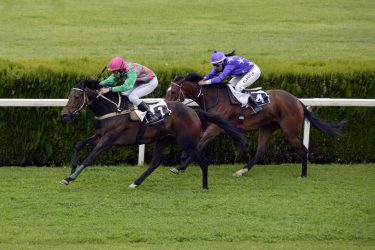 The UK’s Horserace Betting Levy Board and the Racing Foundation have jointly pledged £22m (€25.2m/$27.4m) in emergency support to the British horseracing industry to help it to manage the novel coronavirus (Covid-19) pandemic.
The UK’s Horserace Betting Levy Board and the Racing Foundation have jointly pledged £22m (€25.2m/$27.4m) in emergency support to the British horseracing industry to help it to manage the novel coronavirus (Covid-19) pandemic.Horse racing in the UK, like almost all sports globally, has been suspended since March and is not scheduled to resume until the end of April at the earliest.
However, the Covid-19 Racing Industry Group’s Resumption of Racing Group has been working with horsemen, racecourses and other stakeholders on a plan to resume racing behind closed doors as soon as possible.
The HBLB’s funds will mostly go towards racecourses, which will receive £13.5m, while £8m from the Racing Foundation will go towards “hardship issues faced by racing’s participants, both human and equine”.
“This is a substantial undertaking by the Levy Board in conjunction with the Racing Foundation,” HBLB chairman Paul Darling said. “The Board has agreed to make available significant sums to racecourses through a combination of measures that will meet the demand for cash in the short-term. “Importantly, this approach preserves further levy funds that we know will be needed for prize money when racing resumes.”
Ian Barlow, chairman of the Racing Foundation, said the exceptional circumstances regarding the outbreak of the virus and its impact upon the racing industry has necessitated spending a much larger portion of the Foundation’s endowment than usual.
“The Trustees of the Foundation agreed that during this exceptional time the organisation should not be bound by its normal endowment rules and be prepared to bring forward future years’ expenditure, while utilising some of its capital to support the emerging needs of the sport,” Barlow explained.
“The funding requests we have received are varied and we want to take an approach which can help alleviate the immediate hardship being felt by the sport’s people, horses, businesses and charities.
“Through close and continued collaboration both organisations will seek to meet the immediate hardship needs presented to us and ensure necessary funds are in place to commence racing and support the sport in the months ahead.”
Among the payments the HBLB will make is an advance payment of raceday services grants to racecourses. The HBLB typically pays racecourses £12,571 for most fixtures for regulation and integrity services. However, the board has agreed to make up to eight of these payments early, paying four now and four “in the near future”. These payments are worth a combined £8m.
In addition, the two organisations will contribute £3.75m each towards four-year loans of up to £200,000 per racecourse. There will be a cap on the amount available to racecourse groups.
The organisations will also provide funds towards Racing Welfare’s “hardship grants” programme, which has seen a major increase in requests since the outbreak of the pandemic.
In addition, the HBLB and Racing Foundation will create a “racing relief fund,” worth up to £2.5m and “designed to meet the welfare needs of horses who may be at risk if owners become unable to support them”.
Self-employed jockeys, valets and agents unable to earn a wage will be able to benefit from a hardship scheme worth up to £900,000, which is intended to provide benefits similar to the British government’s furlough scheme.
The two organisations will also provide £2.8m in order to solve the cash flow problem caused by the furlough scheme as employers await reimbursement for payments to furloughed staff.
British Racing’s official charities will also receive £900,000 from the HLBL and Racing Foundation.
“Negotiating the many challenges ahead of us all will require exceptional co-operation between every sector,” Darling said. “Those challenges can only be met if British racing and the betting industry work in partnership and the Levy Board will play a full and active part in ensuring that this happens.”











